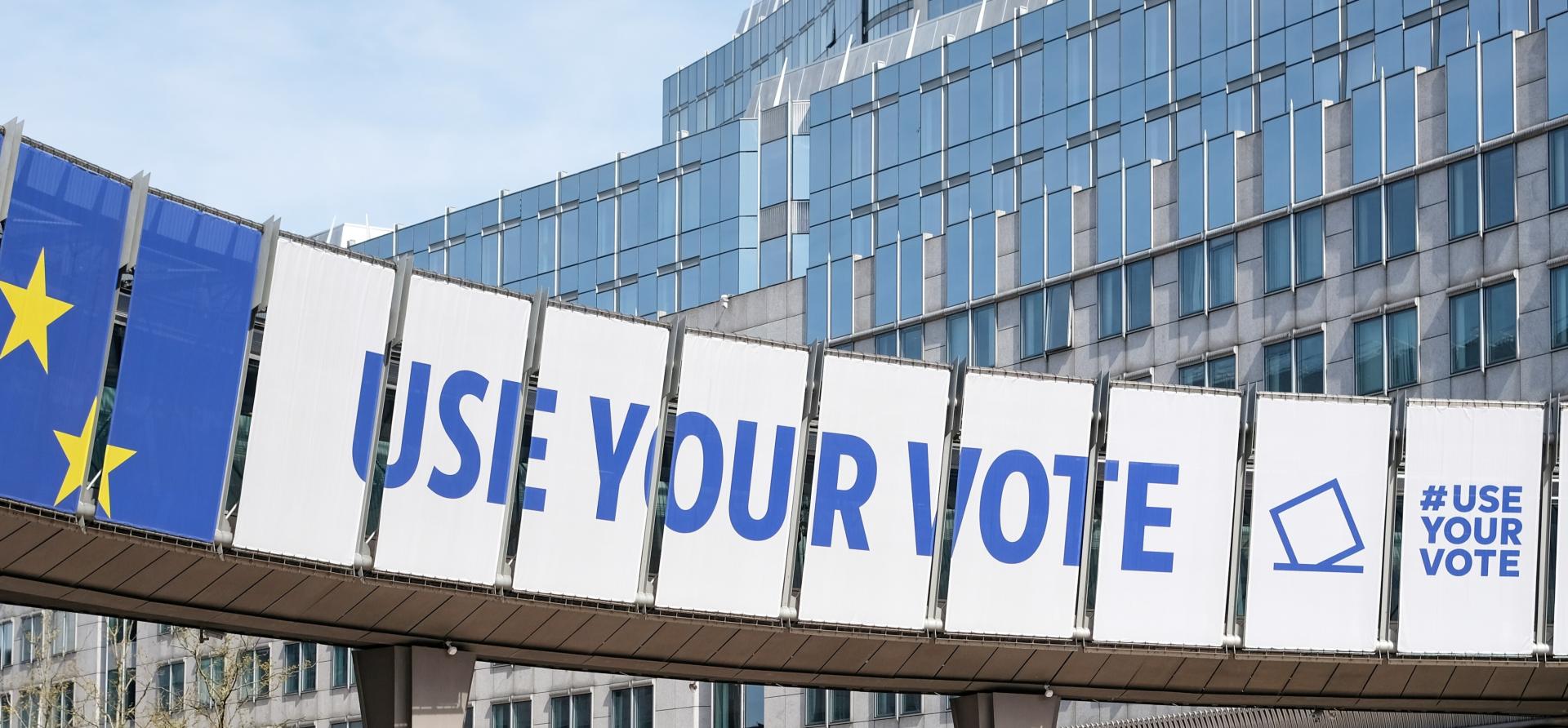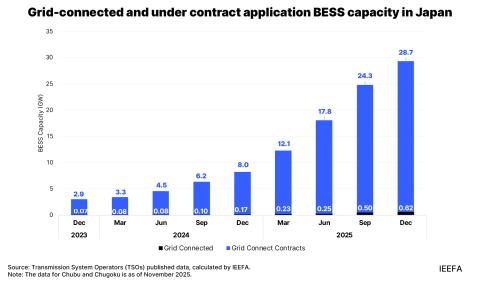EU Omnibus ‘stop-the-clock’ proposal: A call for compromise

Key Findings
A hurried proposal to delay EU sustainability reporting has left scant opportunity for debate in the European Parliament.
Rushed postponement could undermine the credibility of the EU’s sustainable reporting framework and punish companies that have already committed resources to meet imminent deadlines.
A compromise exists. Rather than postponing reporting, a more balanced approach would be to delay sanctions and enforcement until legal uncertainties are resolved.
By adopting this approach, the EU’s regulatory framework would maintain some semblance of consistency and give businesses breathing room while more substantive changes are worked out by policymakers.
A rushed proposal to delay EU sustainability reporting requirements has opened up a rift between the European Parliament’s two largest parties. Before continuing battle, centrists would do well to take a breath. The first Omnibus (“stop-the-clock”) proposal doesn't need to be a binary choice. There is still time for moderate Members of the European Parliament (MEPs) to unite behind a middle ground. Instead of delaying reporting, the smarter move at this stage is to delay enforcement until legal uncertainties are resolved.
As it stands, the stop-the-clock proposal aims to delay reporting timelines for the EU’s Corporate Sustainability Reporting Directive (CSRD) by two years and grant a one-year extension for the transposition and application of the Corporate Sustainability Due Diligence Directive (CSDDD). Having been agreed by the European Council on 26 March, the proposal was sent unchanged to the European Parliament with a request for urgent procedure. With that fast track approved on 1 April, the deciding vote has now been set for 3 April.
There has been a seemingly broad acknowledgement that some sort of delay would be inevitable so that companies due to report imminently under CSRD would receive much-needed clarity. However, rushed postponement at such a late stage could seriously undermine the credibility of the sustainable reporting framework and punish companies that have already committed resource to meet imminent deadlines. Set in the context of wider policy goals, regulatory instability is also clearly at odds with the ramp-up of capital required under the EU’s Clean Industrial Deal. It is worth bearing in mind that a loss of faith in regulatory stability could have a detrimental impact on capital flows that outlasts any period of delay.
A delay appeared to have garnered broad support as the lesser of two evils, but a last-minute split on the request for urgent procedure underlines just how fraught the realpolitik remains. Now, a meagre two-day turnaround between votes leaves scant opportunity for parties to table amendments, limits debate and all but removes time for consideration.
The choice now is not binary. There is a middle ground that gives companies breathing room while maintaining regulatory consistency.
However, MEPs should remember that the choice now is not binary. There is a middle ground that gives companies breathing room while maintaining regulatory consistency. In line with recommendations made by the Sustainable Finance Advisory Committee, rather than postpone reporting itself, a more balanced approach would be to delay sanctions and enforcement until legal uncertainties are resolved.
This would allow companies to choose to adhere on a best-efforts basis or wait to report only on a delayed basis while amendments to the European Sustainability Reporting Standards (ESRS) are debated. At the same time, the regulatory framework would regain some semblance of consistency. Given the breakneck speeds at which legislative processes are moving, IEEFA strongly suggests this alternative approach be submitted by MEPs for consideration as a matter of urgency and put front and centre of moderate political discourse.
By finding the right compromises now, a united centre might be better placed to push for an agenda that reduces bureaucracy and unnecessary burdens, as opposed to making compromises later that might mean far-reaching deregulation.
What is the Omnibus?
An omnibus is a proposal (or in the case of an omnibus package, a set of proposals) to amend multiple pieces of legislation at once. An omnibus can support coherence between directives that might share common goals. The first Omnibus package proposed by the European Commission targets sustainability rules for businesses, with the CSRD, CSDDD and EU taxonomy all facing overhaul. To allow prioritisation and political expediency, the package has been split into three proposals, of which only the first two will require majority support from Parliament:
- Proposal 1: A stop-the-clock proposal to delay implementation timeframes
- Proposal 2: A proposal to make substantive amendments to core CSRD and CSDDD texts
- Proposal 3: A further proposal for amendments to the EU taxonomy delegated acts

Why is this happening?
Drawing comparisons to the US’s largely deregulated approach, in September 2024 the Draghi report identified regulatory reporting burdens and due diligence requirements as one of the key factors behind the EU's declining economic competitiveness. Competitiveness has since been front and centre for the Commission, which published its competitiveness compass earlier this year. The first Omnibus package is the first attempt by policymakers to reduce compliance burdens resulting from the bloc’s sustainability rules, with amendments expected to save about €6 billion annually in direct compliance costs. It is hoped that this process will create a more favourable business environment and allow EU companies to “grow, innovate, and create quality jobs”.

What are the major changes proposed?
CSRD: Most strikingly, the proposals would dramatically reduce the number of companies needing to report sustainability information by an estimated 80%, bringing the number of companies in scope to below Non-Financial Reporting Directive levels (CSRD’s far less ambitious predecessor). A “value chain cap” has also been tabled to dissuade large companies from pressuring smaller suppliers into providing data not legally required of them. For companies that do remain in scope, the Commission aims to “substantially reduce the number of data points” demanded. The full extent of what that means won’t be known until the delegated act introducing the ESRS (the framework underpinning CSRD) is revised. But in the meantime, plans for sector-specific standards and a move to “reasonable assurance” would both be scrapped under the proposals.
CSDDD: While company size thresholds for mandatory compliance would remain unchanged, the scope would be significantly dialled back under proposals requiring companies to assess the environmental and social impacts of direct suppliers only (rather than their full value chain). They would be required to do this with far less regularity (on five-year as opposed to yearly cycles). Transition plans would remain mandatory to develop, but their implementation would become optional. Obligations for large companies to terminate relationships with suppliers that fail to address adverse impacts on people and the planet would be removed.
The EU taxonomy: The categorisation system would remain substantively untouched, including all technical screening criteria. However, it’s worth highlighting that taxonomy alignment reporting falls under the CSRD. This means that the number of companies disclosing how much of their business model is sustainable would be slashed in line with proposed amendments to CSRD (as above). Materiality thresholds have also been introduced at 10%, meaning companies would need not report on activities below that level.
Timeframes: Implementation deadlines for both CSRD and CSDDD would be pushed back as part of the stop-the-clock proposal. Both would not come into force until 2027, with reporting due a year later. This creates a two-year delay for companies that have not yet reported under CSRD (known as wave 2 & 3 companies) and grants a one-year extension for the transposition and application of CSDDD.

Looking ahead to the substantive proposal
A measured approach must be applied to the other two proposals that make up the Omnibus package, particularly the second proposal that seeks substantive amendments to CSRD and CSDDD. Significant scalebacks, both in terms of transparency and rules that govern how companies must protect against social and environmental harms, will require due diligence. The political and legislative process for the second Omnibus proposal is likely to endure throughout 2025 and beyond, giving time for the Commission to better outline its case for lower ambition.
A full dissection of proposal texts is beyond the remit of this commentary, but IEEFA would offer initial top-level observations on how the Omnibus appears founded on (thus far at least) an unconvincing costs-only narrative that seems to wilfully ignore the benefits that accompany a comprehensive transparency framework. This is particularly jarring given such benefits have been identified during previous analyses (for example, the European Financial Reporting Advisory Group’s assessment on ESRS) and used to assure stakeholders that sustainability directives would indeed drive net benefit.
- Costs overblown? The Commission has structured Omnibus proposals around a thesis of reducing compliance burdens on companies, estimated to be in the region of €6.3 billion per annum. This is clearly not an insignificant figure but needs to be put in context. The abovementioned European Financial Reporting Advisory Group-commissioned report detailed how annual CSRD compliance might cost just 0.004% to 0.008% of company turnover. Independent analysis expects CSDDD will be marginally more expensive at 0.01% of turnover. In the case of the latter, this accounts for as little as 0.13% of profits distributed to shareholders. Average costs mask sectoral and size-based variations, but when viewed in these terms and even compared to the likes of the EU’s General Data Protection Regulation, costs are far from disproportionate.
- Benefits largely ignored. Consideration of the potential benefits appears to be completely absent from discourse, adding to a false narrative that sustainability is solely a cost centre for companies. As previously identified by the EU itself, the potential benefits to companies are significant and include (but are not limited to):
- Enhanced risk management capability
- Greater awareness of operational (in)efficiencies
- Enhanced reputation and brand value
- Ability to attract and retain talent
- Greater innovation
- Benefits associated with stronger stakeholder relationships
- Improved investor confidence and access to capital

For further coverage relating to the Omnibus and sustainable finance in the EU, please subscribe to IEEFA's European Sustainable Finance Regulation Updates.















